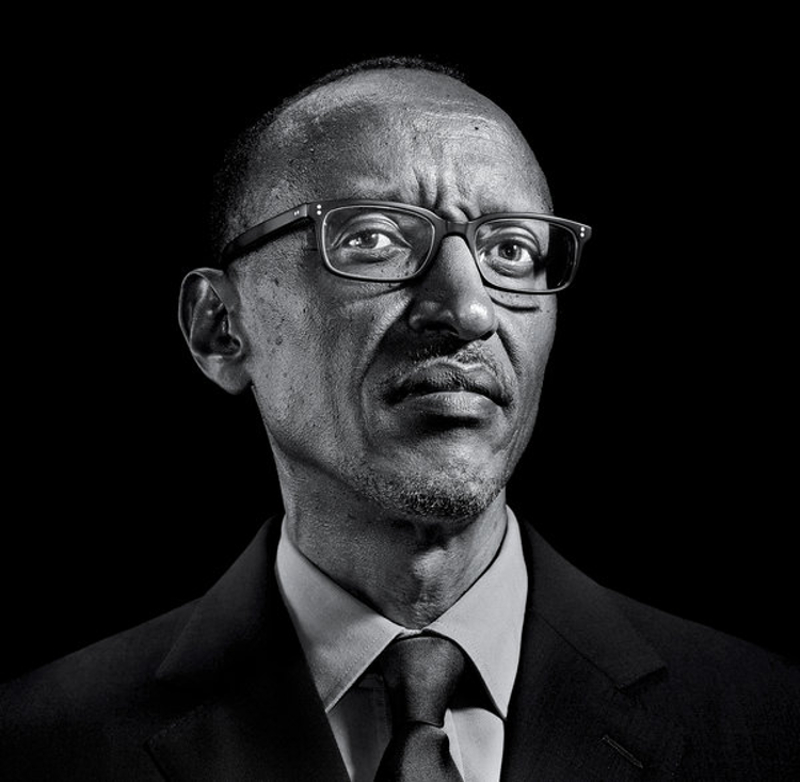Last Monday, Rwanda commemorated the victims of a genocide unleashed 20 years ago by trained extremists. An estimated 800,000 people, mostly women and children, were systematically hunted down and brutally murdered over a 100 day period.
It was a dark period in African history.
Over the past two decades, Mr. Kagame and his government in Rwanda have done an impressive job of rebuilding its institutions and economy. They have brought perpetrators of the genocide to justice. Rwanda’s courts have tried up to 20,000 individuals, and the country’s Gacaca courts have also handled some 1.2 million additional cases.
Incredibly, Rwandans now live side by side. The government of President Paul Kagame has transformed Rwanda into a model country for African States – a country of order and increasing prosperity in a plush but politically volatile region.
A recent New York Times editorial board article seems to follow in the steps of articles in France and the US in blaming Mr. Kagame however. They insist that though Mr. Kagame has made incredible progress in Rwanda, it has come at the cost of a ‘true’ democracy.
Europe and the USA insist that Mr. Kagame must be held accountable for abuses in Rwanda and outside its borders, where he has gone after critics in Uganda, Kenya, South Africa and Europe.
After putting into perspective the sort of democracy the US and the EU propose for Rwanda, it is only expedient that Mr. Kagame hasn’t caved.
The EU/US led crusade on spreading democracy around the continent has not had a laudable history. It has plunged peer African nations into turmoil leaving in its wake a recent casualty in Libya.
The US has not been without its own issues in this practice of democracy. In the US, the super-wealthy control the vote – they own without question the only two political parties that have any chance of winning elections.
But against this dire backdrop, most US and French papers in particular claim instead that civil and political rights in Rwanda are severely restricted. That dissidents and opposition political leaders are subject to harassment, detention and torture. They even go further by insinuating that Mr. Kagame has personally butchered several of his opponents.
On the one hand, these critics applaud Mr. Kagame for a wonderful job in rebuilding the country. On the other hand, they somehow think the international community must hold him responsible for unpleasant events in Rwanda.
The New York Times editorial board conveniently forgets to mention the role of the international community, notably the UN and pseudo foreign political organizations masquerading as Aid Organizations, who protected armed perpetrators of the genocide during the 100 day period.
If people are to be held responsible, it is not the EU’s place. If we are to hold people responsible, it is certainly not the place for the US.
The case of Rwanda and the genocide does not spare the west accusations of shameful paralysis during the Rwandan genocide, and it will not protect the international community from the judgment of history for mass murder now or in the future.
Perhaps, it is time for France to open its records to public examination. It has been proven time and time again and again that France had close relations to the government that planned and incited the genocide in Rwanda. Yet this lack of clarity about France’s role continues to be overlooked and directs western perspectives and its relations with the Kagame government.
But this is why France has absolutely no business going into action in Mali and the Central African Republic. If the EU and the US can cast blame on Russia for entering the Crimea, why can’t they do the same with France when it continues to invade one African country after the next.
How about leaving Africa alone to hold the United Nations High Commissioner for Refugees and the so-called Aid Organizations responsible for creating the on-going War involving just about every country in the region?
The genocide in Rwanda has certainly left a legacy of unanswered questions and uncorrected failures. It is time to face them. The international community cannot hide behind euphemisms. The reluctance to use the word “genocide” because of the moral horror it carries and the intervention it demands does not change reality.
Rwanda and the entire region would have been better off had all the international interference been nipped in the bud.
Let Mr. Kagame crush the Power Nationalists who conducted the genocide.
The commemoration was also time to honor the sacrifice of the contingent of Ghanaian soldiers and military observers who along with Lt. General Romeo Dallaire and his UNAMIR (UN Assistance Mission for Rwanda) staff and troops, despite being hung out to dry by the international community during the genocide, chose to stay to bear witness.
There is no doubt that the genocide was carefully planned, and meticulously organized to a particularly horrific extent. Murders were committed, with hand tools, by neighbors, spouses, and even parents.
But Rwanda is now a youthful place of energy, beauty, and a visceral presence of grace. Time spent there confuses and inspires and teaches lessons that don’t necessarily resolve.
All this progress and stability is simply because of Mr. Kagame and his government. To maintain such momentum is prudent if Rwanda is to fully recover and train the next generation to succeed her. It will be premature for Mr. Kagame to heed the calling of the west to step down in 2017.
What Mr. Kagame must remember is that his duty is to Rwanda and to Africa, to his ancestors that stepped forth into the day way long before him, and to the generations that will long inherit him – his duty is not to heed the sort of chaotic democracy the US and France wish to propose for or enforce in Rwanda!











He just cannot step down… certainly no now. It would make absolutely no sense. Rwanda needs Kagame more than Kagame wants to be president of Rwanda. We urge the US and the EU to summarily stay out of this! This is not Libya – please say away. Leave Africa alone, we don’t need your help! We haven’t needed it for 10s and 100s and 1000s of years way before Europe was even born, and we didn’t need your help then, and we certainly don’t need it now.
US and EU do not know the meaning of the words stay out. lol.
Kagame reminds me of the Africa past. Kemet, Nubia, Ghana, Mali, Songhay. I couldn’t be more proud. Kagame must stay. Democracy is an imperialists tool, it should die in Africa. The African Communal System is the only practical way forward for our development.
Africans have been around for a long time and are still here. Something about the communal system must be working. I am sure they have tried other things but that has stood the test of time. If it isn’t broke, do not go about fixing it. Good luck with Western democracy/capitalism/poor-making.
This is an interesting piece and I think that I can agree with the premise of this argument. I still think that Kagame must take steps to find a replacement/ or Rwanda must take steps to find a replacement in the future. Afterall, Kagame is going to be gone one day and then what?